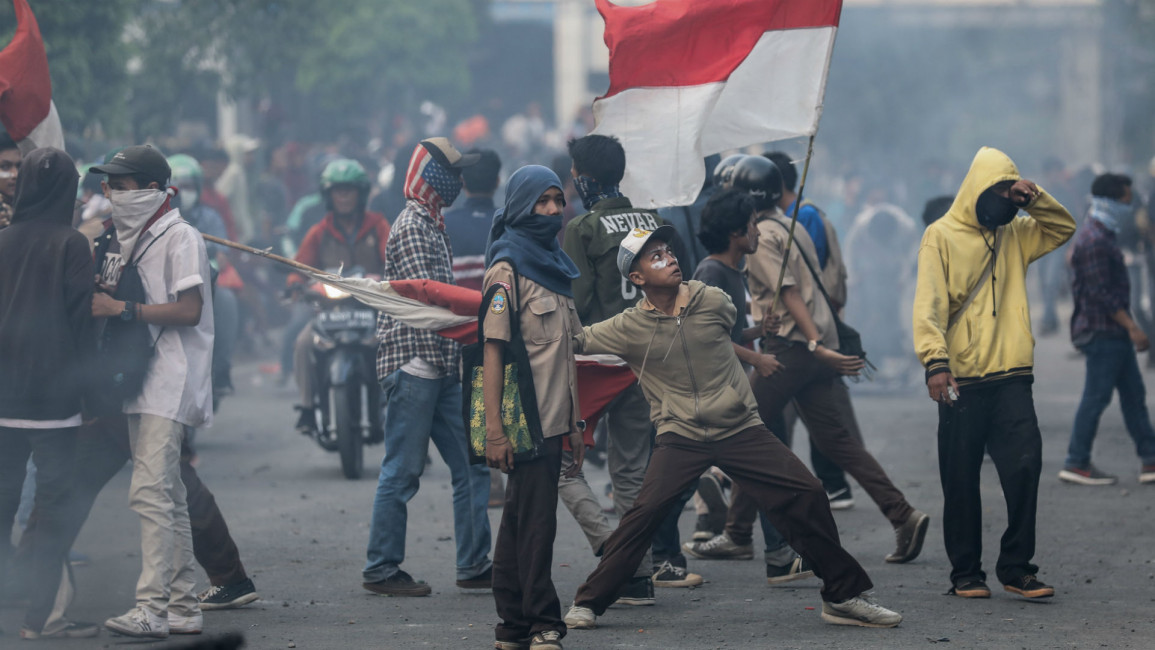Explainer: Indonesia's plans to outlaw pre-marital sex, witchcraft, abortion and more
The protests erupted in response to a proposed criminal-code overhaul that includes everything from criminalising pre-marital sex and restricting sales of contraceptives, to making it illegal to insult the president and toughening the Muslim majority country's blasphemy laws.
The rallies are among the biggest anti-government demonstrations since 1998 when mass street protests brought down the three-decade Suharto dictatorship.
What laws are being proposed?
Among the raft of proposed legislation, plans to punish pre-marital sex with up to a year in prison has featured prominently in reports around the world about the bill, which covers 628 articles in total.
But there's much more to it.
Making derogatory remarks about or insulting the country's president would be outlawed. The same law would also apply to insults against any one of Indonesia's officially recognised religions, the country's flag or national anthem.
Except in cases of rape and medical emergencies, abortion would also be outlawed in the new penal code. Offenders would face a prison term of up to four years if the laws are passed.
Black magic would also be banned, with the bill targeting those who peddle supernatural services.
Living together out of wedlock would also be punishable by a six month prison term or a maximum fine of 10 million rupiah ($1,000). The laws would also effectively outlaw gay sex.
|
||
Why was the bill introduced?
Updating Indonesia's criminal code, which dates back to the Dutch colonial era, has been debated for decades and appeared set to pass in 2018 before momentum fizzled out.
A renewed push this year, backed by conservative Islamic groups, was met with a wave of criticism over what many saw as a draconian law that invaded the bedrooms of a nation with some 260 million people - the fourth most populous on Earth.
Analysts have noted an increased tendency towards conservative Islam in Southeast Asia, with neighbouring Brunei having come under fire earlier this year for its introuction of a new penal code which included death by stoning for gay sex.
What are protesters demanding?
Students have issued a list of demands including scrapping some of the criminal-code changes, withdrawing troops from Indonesia's unrest-hit Papua region, and halting forest fires in Sumatra and Borneo that have unleashed toxic haze across Southeast Asia.
Hundreds rallied in the capital Jakarta - as did scores in the second-biggest city Surabaya, and in Borneo on Tuesday - but the crowds were smaller than the thousands who took to the streets nationwide the previous day.
When will lawmakers vote on the bill?
A vote on the criminal code bill was originally scheduled for Tuesday.
But President Joko Widodo last week called for a delay in passing controversial changes that could affect millions of Indonesians, including gay and heterosexual couples who might face jail for having sex outside wedlock, or having an affair.
On Tuesday, the head of Indonesia's parliamentary commission overseeing legal affairs confirmed the bill would be carried over to the next parliament in October.


![President Pezeshkian has denounced Israel's attacks on Lebanon [Getty]](/sites/default/files/styles/image_684x385/public/2173482924.jpeg?h=a5f2f23a&itok=q3evVtko)



 Follow the Middle East's top stories in English at The New Arab on Google News
Follow the Middle East's top stories in English at The New Arab on Google News


